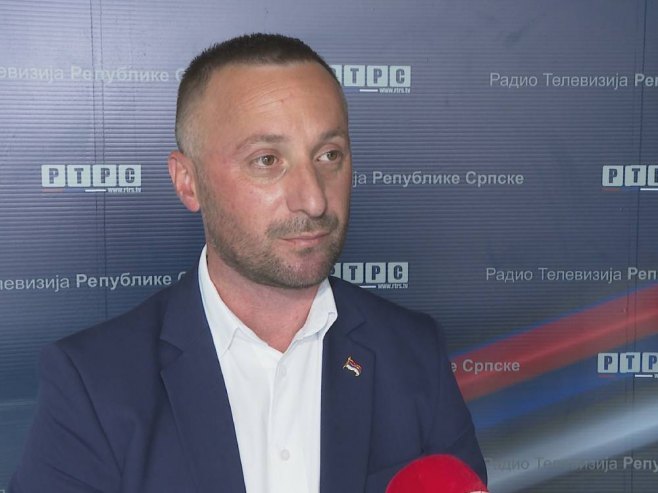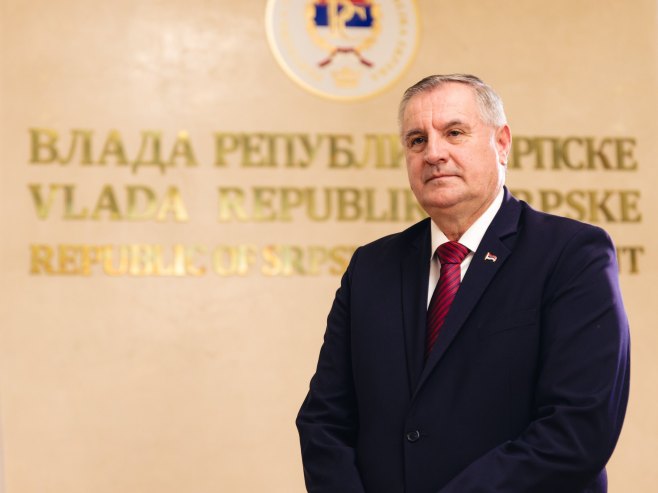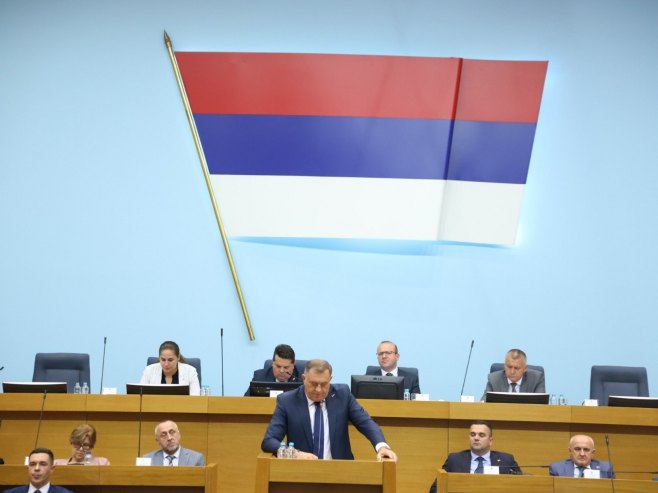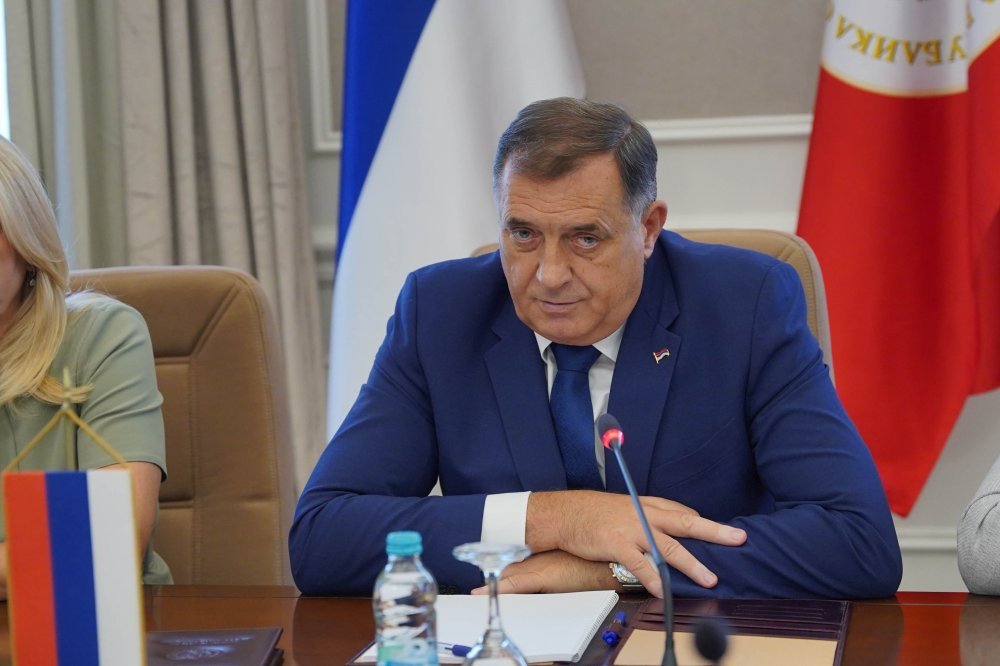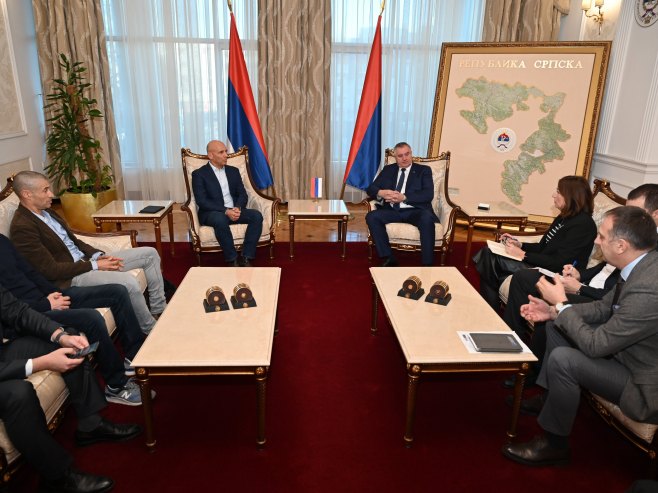The future of Bosnia and Herzegovina depends solely on the people and political leaders who live here and represent the citizens. No high-ranking or international advisers or helpers will ever organize this country. They neither know how, nor can, nor want to do so in a way that suits the people living here, said the Prime Minister of Republika Srpska, Radovan Višković, in an interview for Glas Srpske.
“There is certain information—still unofficial and unconfirmed—that some from the other entity are considering provoking an incident at any cost in order to accuse Republika Srpska, or its top officials, of responsibility. So they could say: ‘See, they didn’t want to come voluntarily,’ and that justified an intervention. I call on everyone to refrain from such actions. A solution exists—if they truly want one,” Višković stated.
On the arrest warrant and Schmidt’s legitimacy
Asked whether he fears arrest due to the central warrant issued against him, Višković responded:
“I haven’t done anything to feel guilt or remorse. Anyone who respects the constitution of the country they live in cannot be accused of undermining the constitutional order. That is precisely what is being attributed to us—undermining the constitutional order—based on the amendments to the Criminal Code of BiH imposed by Christian Schmidt in July 2023. Everything has already been said about him. Republika Srpska does not recognize him. He never received any official confirmation as High Representative—not even from the Peace Implementation Council. Even if, in quotation marks, he were legal, he would have no right to unilaterally change or impose legal solutions. Unfortunately, in BiH, the Federation entity accepts such actions, and that is the biggest problem in this country.”
He added that past High Representatives pressured parliaments into adopting laws, rather than imposing them directly, and that Schmidt now creates legal chaos with the approval of the Federation.
“That will eventually come back to haunt them, not us. BiH was never intended by the international community to function as an orderly country, but rather as an artificial construct, ready to be destabilized when needed. Analysts who say BiH is a potential flashpoint or powder keg are right,” Višković said.
On personal security
Višković confirmed that he is a protected official under the law and constitution of Republika Srpska and that the Ministry of the Interior determines the necessary security measures.
“I fear that someone from the other entity or from the level of joint institutions—especially the Prosecutor’s Office, the Court of BiH, or SIPA—will try to provoke an incident to blame us. I appeal to reasonable leaders in BiH institutions to refrain from such behavior, because I am genuinely afraid that a scuffle could result in a serious incident, which would be used as a trigger for further escalation. We’ve clearly said we are willing to give a statement—just transfer the case to Banja Luka. Let the BiH prosecutor come to the Ministry of the Interior of Republika Srpska, and we will appear. What is illegal about that? But no—they want to humiliate us, to parade us in handcuffs, and show that they can degrade the representatives of the top institutions of Republika Srpska. And by degrading us, they degrade the entire Serb people. We will not allow that humiliation.”
On workers and wages
Speaking about International Workers’ Day, Višković emphasized the government’s consistent focus on workers, stating that the number of employed people is the highest to date and that the gray market has been significantly reduced. He noted that the public sector, including health care, education, culture, judiciary, and the police, recently received a 10% pay increase—with officers who carry weapons receiving a 30% raise due to working conditions.
On the average wage
Višković confirmed that the average salary was raised by 40 KM at the beginning of the year, following the introduction of wage brackets: 900, 950, 1,000, and 1,300 KM.
“We introduced wage brackets to prevent employers from paying all workers the same salary regardless of qualifications. The Tax Administration monitors compliance, and we’ve had no major violations. This was only the first step; the next is increasing salaries within each bracket.”
He added that the average salary in Republika Srpska remains higher than in the Federation and that the price of electricity is lower.
On reaching the 2026 wage target
Višković said the goal of reaching a 2,000 KM average wage by 2026 remains in place.
“If you don’t set goals, what are you working toward? Will we reach it? I don’t know yet, but we’ll do everything we can to get there. Ambitious goals push us to invest more effort—not populist slogans.”
On media regulation
Višković announced that a draft media law will be presented to the National Assembly before the summer break.
“My goal is not to restrict anyone, but to create a regulated media space. Today, anyone with a phone can call themselves a journalist. This is more my initiative than the media community’s—they have not shown much interest. But I believe professional outlets and real journalists are the ones currently suffering most.”
On public enterprises
He acknowledged that public enterprises are struggling, using the case of Željeznice Republike Srpske as an example.
“The steel plant in Zenica stopped operations, which accounted for nearly 50% of the railway’s revenue. There is no more ore transport from the Mital mine in Prijedor. Salaries will be paid before the holidays, and the government will fulfill its legal obligation. However, the monthly grants we provide are intended for infrastructure and passenger service—not for salaries.”
On Schmidt’s move to freeze SNSD funds
When asked if Schmidt’s decision to block budget funds for SNSD will weaken the party, Višković replied:
“It won’t. Schmidt does not exist for Republika Srpska. We will not respect his decisions. We will implement the laws of Republika Srpska.”
On cooperation with ministers
Regarding rumored tensions with Transport Minister Nedeljko Čubrilović, Višković denied any problems.
“I have a good working relationship with Čubrilović. There are no disagreements. The government is a collective body. If anyone disagrees or thinks they shouldn’t be in the government, there’s a proper way to resolve it.”
Source: RTRS

